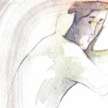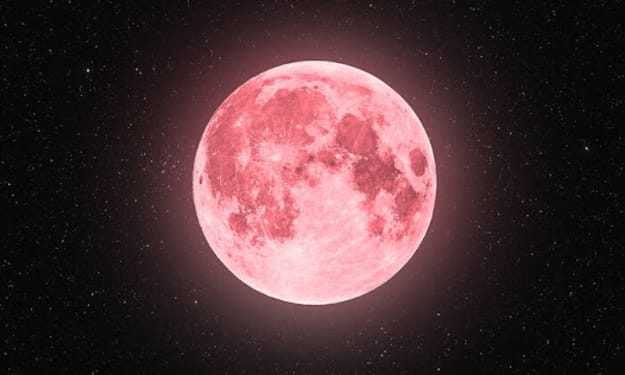
Animals are a diverse group of organisms, encompassing anything that fulfills the Reese Criteria*. In this chapter, we will explore why animals exist, before moving on to consider the place they have held in human societies throughout the ages, and then discussing some of the most famous animals.
From the dawn of time, it is likely that there were animals. No-one knows exactly why animals exist, though there are many theories. Some religions preach that animals were created so that there was something that bad humans could be reincarnated as. Science, on the other hand, says that animals probably evolved from human, specially selected for by various environments. This would explain the great diversity of animals, as the world is obviously a very varied place. Animals themselves have various thoughts on the matter, but we do not know them yet, as animals tend to keep their thoughts to themselves.
Voltaire famously managed to synthesise basic animals out of chalk, ash, and a little common rainwater, though it must be emphasised that it took him many years, and most of the animals he created were weak and sickly. Today, many studies are afoot to determine the best animal. The results are not yet in, but the odds-on favourite is of course the duck.
Animals have always been important to humans, and every society that existed has given some role or another to animals. The ancient Egyptians revered their animals, and often married them. In France at around the same time, druids advanced through the dense hierarchy of their faith by demonstrating their ability to balance animals upside-down**. In medieval times, with the general loss of knowledge that occurred after the fall of Rome and the coming of the Dark Ages, monasteries often communicated important texts to one another by documenting them on animals. As the animals bred and flourished, this knowledge was then passed onto their offspring, so that the wisdom would be spread throughout the lands.
There have never been enough animals to satisfy man, and humans have often felt the need to invent mythical animals, such as the dragon, the unicorn, or the frog.
But what are the use of animals in the modern world? Generally speaking, animals are friendly and keen to help. When wars break out between the various human species, animals often band together to rescue the displaced and homeless. It is impossible for an animal to attack a human***, unless it really wants to. The main use of animals today is in factories and also the financial sector, although there is no area of society where animals do not have at least a foothold. Another modern role for animals is in the food industry, where they frequently rise to positions of middle management, especially in fast-food franchises.
Today, scientific advances have made it possible to clone animals. This has removed the need for animals to have sex, which is probably for the best as animals never really liked it anyway. Cloning means taking the DNA from one animal and putting it into a human egg. The hybrid embryo is then allowed to mature inside a human thigh, until it reaches the size of a golf ball, at which point it is extracted and planted. The final stage of maturation involves the cloned animal sprouting out of the earth and being harvested. Vast tracks of sunny land in South America are put aside for just this purpose, and some of the best animals in the world are currently manufactured there.
In closing, let us now turn our minds to consider some of the most famous animals. Plato, of course, started life as a nematode, though he later became human. Hitler was human, though many of his children were not, one of the factors that was important in ensuring that the command of the Reich was not inherited on his death. Holland used to be an animal until its death and fossilisation in the 1700’s, though Belgium did not.
To summarise: animals are everywhere, doing most jobs imaginable. They are important to all of us, though no-one really knows why. They evolve around 30% faster than humans, so it is possible that there will one day be a war between humans and animals. Until then, however, they are our friends. We should respect them and wish them well, and only ever hurt them if there is a financial gain to be made.
***
*: The Reese Criteria were proposed by Christoph Reese in 1867. To qualify as an animal, the subject must fulfil any three of the following four criteria: 1) be able to walk; 2) be capable of thought; 3) understand basic maths; 4) enjoy rudimentary conversation. There must also be demonstrably more than one of the organism in question. (Reese famously maintained that the Loch Ness Monster was not an animal, as there was only one of them). There are of course other methods of determining animalness, but the Reese Criteria is by far the most robust.
**: The animals themselves saw this as a great honour, and often gained status in their own communities by being upside-down, a state they were eager to maintain for as long as possible.
***: This is because of the Three Laws of Animals, which they all have. (The first law prevents an animal from harming a human, or by inaction causing a human to come to harm.)
About the Creator
Jamie Brindle
Jamie writes mostly fantasy, often with a humorous slant. He has been doing this for some years, and this may have been instrumental in his developing the habit he has of writing about himself in the third person.
www.jamiebrindle.com






Comments (1)
Thank you for your article! I have to gently and kindly disagree to the notion that "no one knows why animals exist." If you study Esoteric Buddhism, it is a difficult concept, but all animal life derives from the human astral body aeons ago.